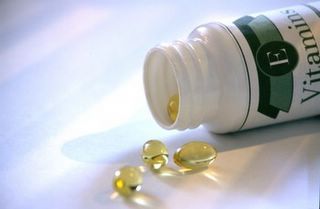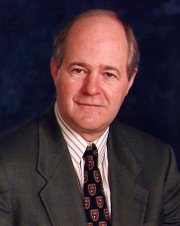"High Levels of Vitamin E Cut Prostate Cancer Risk"...
 The Heart study concluded, "after seven years, those taking the (VitaminE) supplements had a slightly higher rate of heart failure. Although no one knows why. Conclusion presented "It ( vitamin E) does not reduce the risk of these diseases if you take supplemental vitamin E."
The Heart study concluded, "after seven years, those taking the (VitaminE) supplements had a slightly higher rate of heart failure. Although no one knows why. Conclusion presented "It ( vitamin E) does not reduce the risk of these diseases if you take supplemental vitamin E."Did the study prove that? What does a slightly higher rate mean? Vitamin E was given to people who already had heart conditions and diabetes to see if it would prevent them. How can risk be reduced, when the disease is prevalent?
The news reports on the study do not reveal, how prevalent the diseases were in the subjects studied. Were the subjects severely incapacitated, mildly so, or in the middle? The news reports did not discern the type of vitamin E used or what bearing that may have on the results.
A supplementary regime is intended to prevent a disease condition, not cure it Current drug therapies are designed to manage such conditions not cure them. The study proves that in the boundaries of its focus , Vitamin E may not be a curative therapy. However, there is a body of evidence that draws other conclusions. This is an important distinction, mostly ignored by news reports, for people actively engaged in self care.
On the Prostrate cancer study, report here's the lead line: "High blood levels of the major vitamin E components, alpha- and gamma-tocopherol, seem to cut the risk of prostate cancer by about 50 percent each, a study shows"... That would seem to be good news. This study concludes the antioxidant activity of Vitamin E is the catalyst in reducing the risk of prostrate cancer.
Conclusion, just like that car you buy, check under the hood of medical studies, particularly the conclusions drawn by headlines, your health may depend on it.

No comments:
Post a Comment